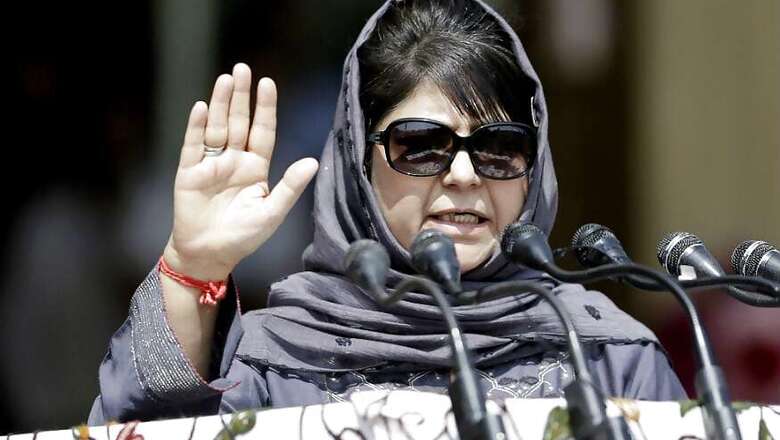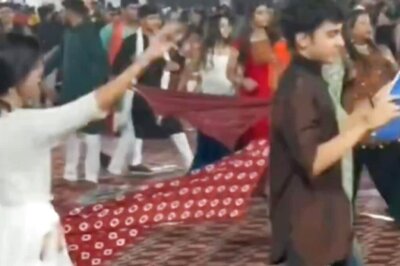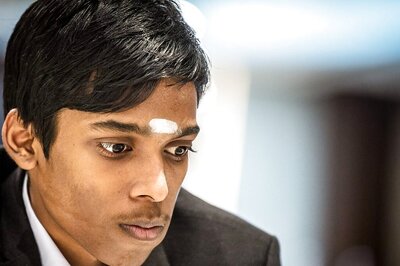
views
Three months after the Supreme Court ‘set aside’ the practice of instant triple talaq, the Centre has drawn up a draft law which makes it a cognizable and non-bailable offence, punishable with three years jail and a monetary fine.
The proposed law also allows the affected woman to move court, seeking ‘subsistence allowance’ for herself and dependent children, as well as custody of minor children.
The government decided to enact the law after the Supreme Court order striking down the practice of triple talaq as ‘illegal’ did not act as a deterrent. There were 177 reported cases of instant triple talaq before the judgment and 66 after the order this year.
It’s nothing less than a victory for Muslim women in the country.
But the new law is unlikely to be applicable to the state of Jammu and Kashmir — the only Indian state with a Muslim majority population.
In October last year, when the Centre first opposed instant triple talaq, ‘nikah halala’ and polygamy among Muslims in the Supreme Court and favoured a relook on grounds of gender equality and secularism, former Jammu and Kashmir chief minister Farooq Abdullah had said Muslims in India won’t accept “interference”.
“Every religion has its way. If someone forces something on Hindu religion, will they accept it? In Islam, there is a committee that looks into the matters of Sharia law. If someone wants to force anything, Muslims will not accept it,” he had told reporters.
In fact, when the Supreme Court called the practice of triple talaq “unconstitutional”, it triggered a controversy in J&K with both the opposition parties — National Conference and Congress — terming it as “interference in the religious rights of Muslims’ in the state”.
J&K has its own laws in civil matters such as divorce and is governed (the only state in India) by the Muslim Personal Law, 2007, which had made Sharia the basis for divorce and succession rights.
Even though many argue that triple talaq isn’t very common in Kashmir, the question remains: Shouldn’t the state adopt a legislation to ensure women have equal powers in marriage and divorce?
Like most other places, Kashmir, too, is not devoid of patriarchy.
Nayeema Ahmad Mehjoor, the Chairperson of State Commission for Women says there’s a whole lot to do for women empowerment in the state.
Mehjoor says that domestic violence remains one of the biggest problems. “This is a great decision by the Supreme Court of India.”
Mehjoor, who works for women’s rights in the Valley, says that while she’s in favour of banning triple talaq, it has to be seen in the context of Kashmir.
In an earlier interview, Mehjoor had said that the State Commission for Women receives eight to 10 complaints every day where most the cases are of marital dispute.
“In most cases, women get stamped papers from their husbands telling them they have been divorced and emphasis is placed on character assassination, or that they are not good wives and good mothers. Our religious leaders play an important role by issuing these divorces on their letter pads,” she had said.
She, however, says that one cannot ignore Article 370 of the Indian Constitution while talking about such a law. Under Part XXI of the Constitution of India, which deals with “Temporary, Transitional and Special provisions”, J&K is accorded special status. All the provisions of the Constitution which are applicable to other states are not applicable to J&K.
So, if the Indian law cannot extend to Kashmir, what’s the solution?
“We have to make a different legislation for women empowerment,” says Mehjoor.
During the PDP-Congress rule in 2007, former minister and National Conference leader Abdul Rahim Rather had moved a Private Members’ Bill for the state to have its own law, which was passed unanimously in the state Assembly.
As per the Jammu and Kashmir Muslim Personal Law Application Act, 2007, “The dissolution of marriage including talaq, ila, zihar (and) mubarat, the rule of decision in a case where the parties are Muslims shall be the Muslim Personal Law (Sharia).”
The Bill brought the country’s only Muslim-majority state in the ambit of Shariat laws. The Muslim Personal Law (Shariat) Bill dealt with all questions regarding inter-state succession, special property of female, including personal property inherited or obtained under contract or gift or any other provision of personal law, marriage, dissolution of marriage, including talaq, trusts and trust properties.
The Bill was passed with a voice vote in the state Legislative Assembly in 2007 before it was notified as a law. “Triple talaq cases are very rare here,” says Mehjoor.
“According to Shariat, there has to be three months interval between each time the man says ‘talaq’. Not just that, he has to convince the other party that there should be divorce. Family courts mostly don’t accept triple talaq,” she says.
In the last few years, there were two cases of triple talaq that were heard by the Jammu and Kashmir High Court. In 2012, in the case of Mohammed Naseem Bhat vs. Bilquees Akhter, Justice Hasnain Masoodi had held that a Muslim husband does not have “absolute and unqualified power to pronounce divorce” on his wife.
The trial courts in J&K started to scrutinise the divorce pleas raised by Muslim men on the touchstone of this judgment, thereby virtually abolishing instant triple talaq in J&K.
However, in 2014, in the case of Masrat Begum vs. Abdul Rashid Khan, the same court said that it’s not within the competence of the Court to interpret the Quranic verses or the precepts of the Prophet without knowing the context in which they were made. This judgment once again gave absolute licence to Muslim men to divorce their wives at their whim.
While many politicians have argued that the Supreme Court judgment on triple talaq is part of “RSS ideology to erode the special status of the state”, the J&K government cannot shy away from the fact that there need to be strict laws to ensure women get equal rights when it comes to marriage and divorce.
The question is whether the Mehbooba Mufti government will rise to the occasion and bring a legislation to protect and empower women? It’s about time.



















Comments
0 comment